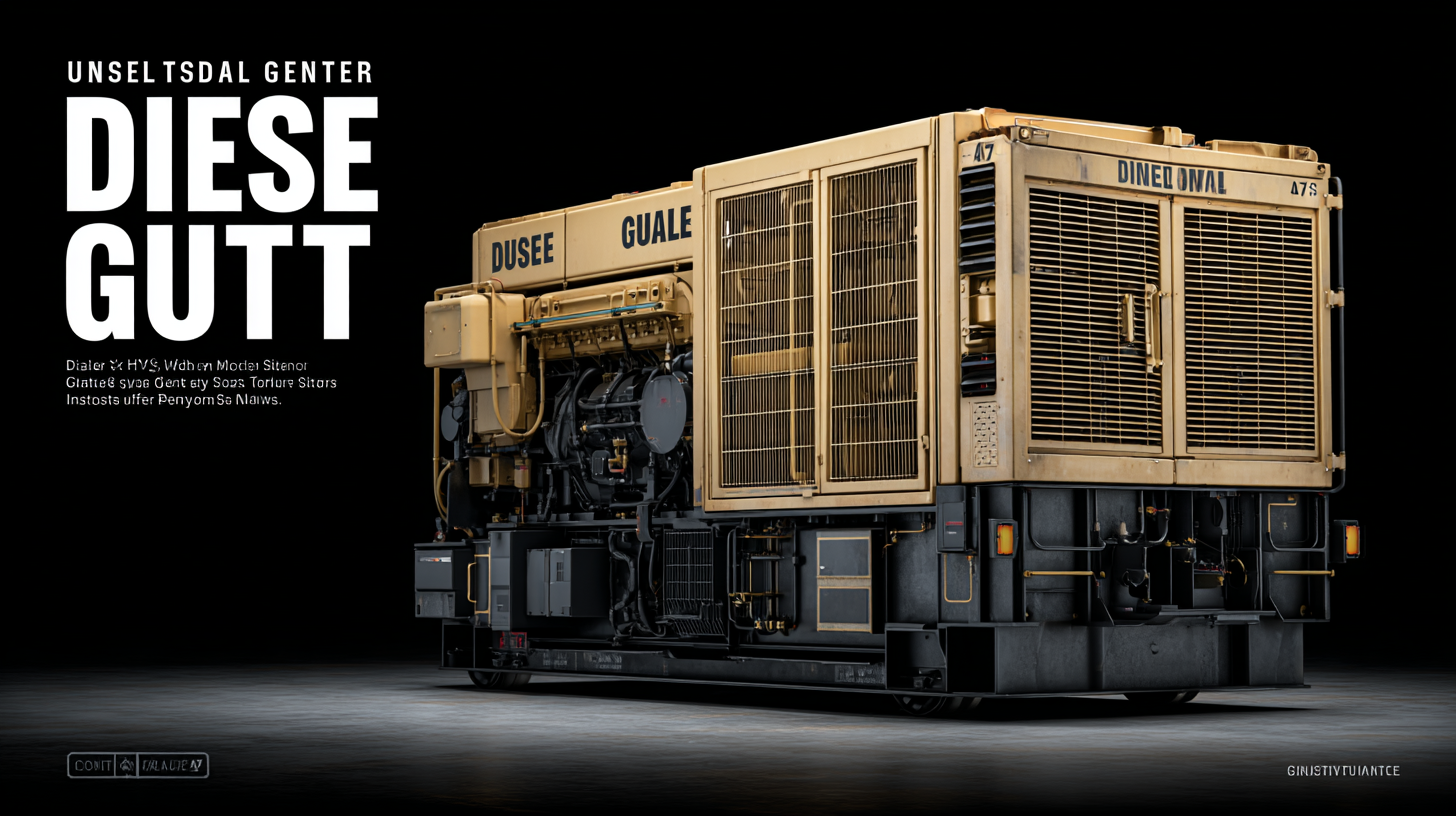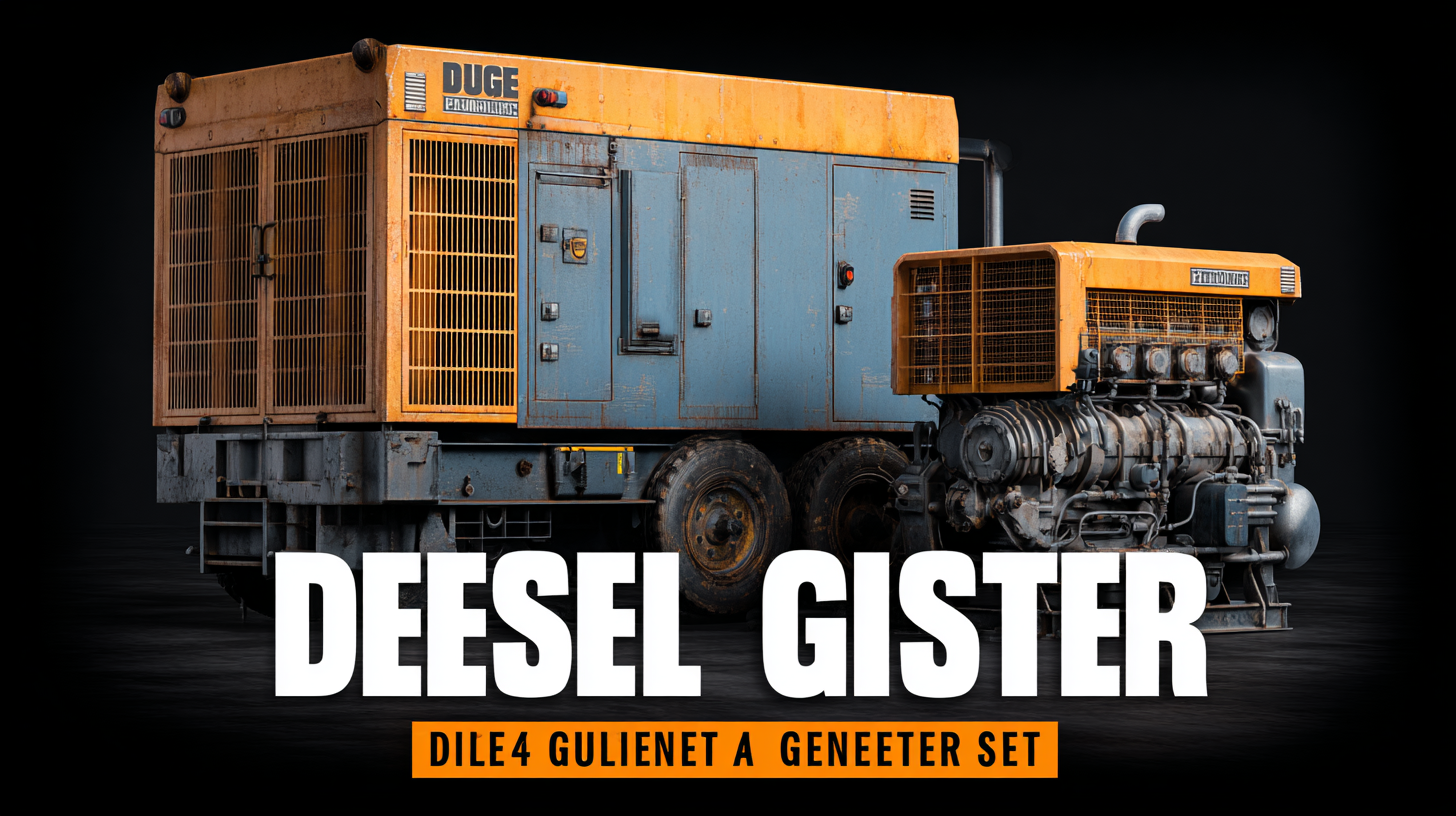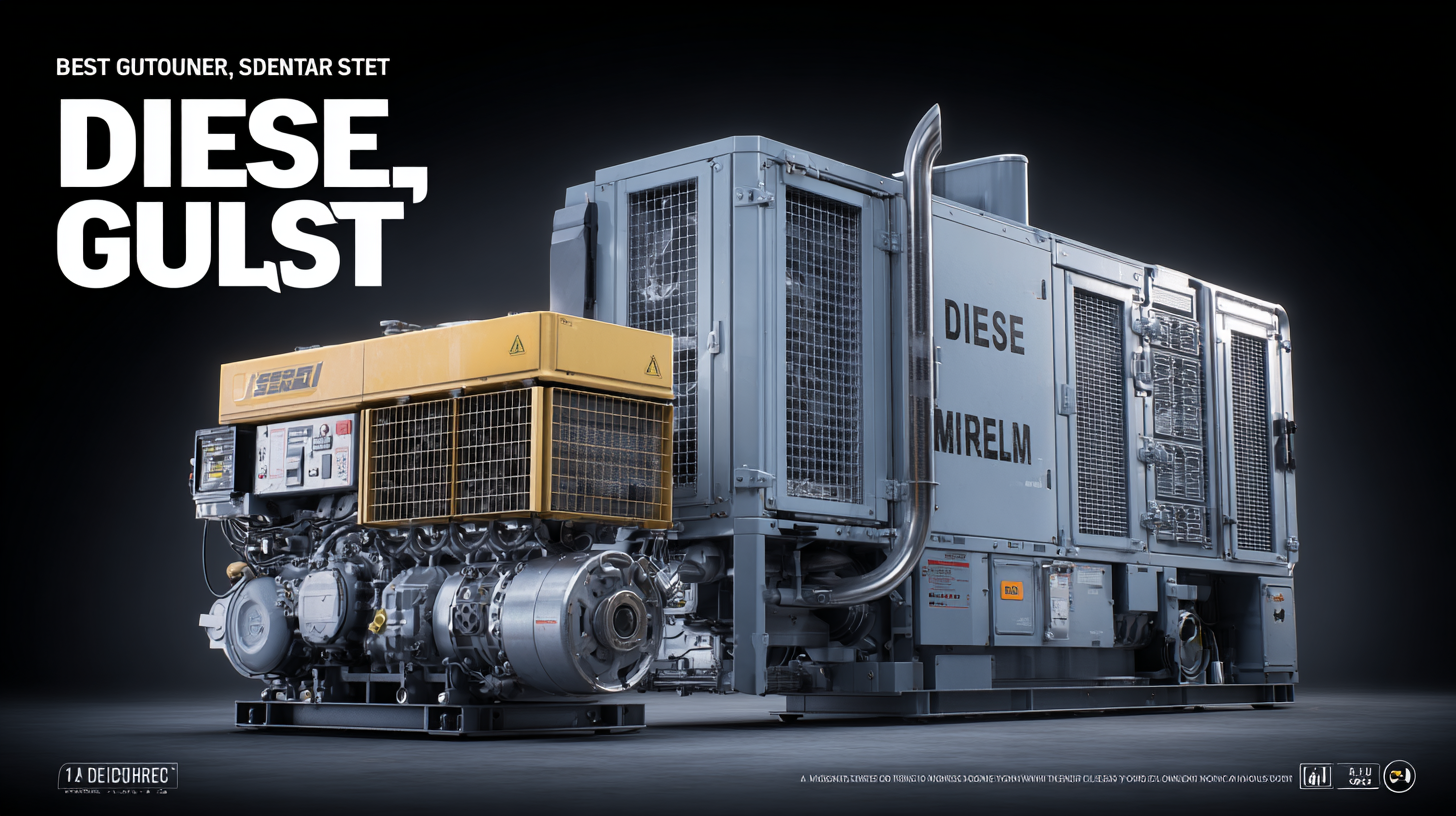
-
Home
-
Products
-
Service
-
About Us
-
Solution
-
Videos
-
News
-
Contact Us
Leave Your Message

 In today's fast-paced world, ensuring a reliable power supply is crucial for both
residential and commercial applications, making the choice of the right Diesel Generator Set more important than ever.
This Ultimate Guide aims to equip you with the essential technical specifications and insights
needed to navigate the diverse options available on the market. With numerous models featuring varying capacities,
fuel efficiencies, and advanced technologies, selecting the perfect Diesel Generator Set tailored to your specific needs can be a
daunting task. Whether you require backup power for your home, a robust solution for
construction sites, or an efficient system for agricultural use, our comprehensive guide will help you understand
the key features to consider, ensuring you make an informed decision that meets your requirements and budget.
In today's fast-paced world, ensuring a reliable power supply is crucial for both
residential and commercial applications, making the choice of the right Diesel Generator Set more important than ever.
This Ultimate Guide aims to equip you with the essential technical specifications and insights
needed to navigate the diverse options available on the market. With numerous models featuring varying capacities,
fuel efficiencies, and advanced technologies, selecting the perfect Diesel Generator Set tailored to your specific needs can be a
daunting task. Whether you require backup power for your home, a robust solution for
construction sites, or an efficient system for agricultural use, our comprehensive guide will help you understand
the key features to consider, ensuring you make an informed decision that meets your requirements and budget.
When selecting a diesel generator set, understanding its key features is essential for making an informed choice. One critical aspect to consider is the generator's power output, typically measured in kilowatts (kW). This will determine whether the generator can meet your energy needs during an outage. Additionally, taking into account the generator's fuel consumption rate can help in assessing its efficiency and long-term operational costs.
Another important feature is the generator's build quality and durability. Look for models that use high-quality materials, as well as those equipped with robust engine components designed to withstand harsh environmental conditions. Noise levels should also be evaluated, especially if the generator will be used in noise-sensitive areas. Finally, consider the warranty and service support provided by the manufacturer, which can be essential for maintenance and repairs over the generator's lifespan.
When selecting a diesel generator set, understanding essential technical specifications is crucial. Key factors such as power output, fuel efficiency, and runtime play a significant role in determining the right generator for your needs. According to industry reports, the power output of diesel generators typically ranges from 5 kW to over 3000 kW, making them suitable for both residential and industrial applications. Higher output models are particularly beneficial for larger operations that require a robust power supply during extended periods without grid access.
Fuel efficiency is another critical specification, as it directly impacts operational costs and environmental impact. Diesel generators are known for their superior fuel efficiency compared to gasoline counterparts, often offering a consumption rate of 0.5 to 0.7 liters per kWh, depending on load. This not only translates to savings on fuel costs but also extends the runtime. For example, some high-capacity models can run continuously for up to 24 hours on a full tank, providing peace of mind during emergencies. Such attributes make diesel generators an invaluable asset for anyone looking to maintain productivity regardless of unforeseen power outages or off-grid challenges.
When it comes to selecting the right diesel generator set, understanding noise levels and emissions is crucial. Modern generators are designed with varying sound output levels, which are often measured in decibels (dB). For residential areas or noise-sensitive environments, it’s important to choose a generator that operates at a lower noise level.
Look for models that are specifically labeled as “quiet” or “silent” generators, as they typically incorporate sound-dampening technology to minimize disruption.

In addition to noise, emissions regulations are increasingly stringent, making compliance a vital consideration. Diesel generators emit nitrogen oxides (NOx), particulate matter, and other pollutants, which can harm the environment and public health.
To choose a compliant generator, check for EPA or CARB certifications, which indicate that the generator meets national emissions standards. Manufacturers are now responding to these regulations by developing cleaner-burning diesel engines and incorporating after-treatment technologies, so there are options available that balance performance with environmental responsibility.
Make sure to factor in both noise and emissions in your decision-making process to ensure you select a generator that fits your needs without compromising on compliance or comfort.
When investing in a diesel generator set, maintenance should be a top priority to ensure the unit's longevity and reliability. Regular maintenance involves not only checking the oil and fuel levels but also inspecting the cooling system and electrical connections. Performing routine checks on the air filter is equally crucial, as it helps to maintain optimal airflow and engine efficiency. A well-maintained diesel generator can provide reliable performance for years, safeguarding your investment while minimizing unexpected downtime.
Another essential aspect of maintenance is adherence to the manufacturer's guidelines, which often include scheduled servicing and oil changes. Additionally, keeping a maintenance log can be beneficial; it helps track service history and identifies patterns that may indicate potential issues. Investing in high-quality fuel and lubricants and using filters specifically designed for your generator can further enhance its operational lifespan. By prioritizing these maintenance considerations, you can ensure that your diesel generator operates efficiently, delivering power when you need it most.
This bar chart showcases a comparison of key technical specifications for diesel generator sets, including power output, fuel consumption, noise level, and operational cost. Understanding these specifications can help you choose the right diesel generator set for your needs.
When selecting the right diesel generator, sizing it properly is crucial to ensure it meets your power requirements without overburdening your budget. Start by calculating your total power needs, considering both continuous and peak loads. Continuous loads are the items that will run for long periods, while peak loads are those that require a surge of power, such as starting electric motors. Recognizing the difference will help you choose a generator that can handle your specific demands.
Tip: Always add a buffer to your calculated needs—about 20-25%— to account for unforeseen increases in power consumption or future appliances. This prevents your generator from being overloaded, which could lead to mechanical issues or reduced lifespan.
Additionally, consider the type of appliances you’re powering. If you're using sensitive equipment, look for generators equipped with an inverter to ensure stable voltage output. This is vital to protect your devices from damage caused by power fluctuations.
Tip: For remote or outdoor applications, opt for a generator with a robust casing and excellent noise-dampening features. This will not only provide better durability against environmental factors but also ensure a more pleasant experience for users and neighbors.
